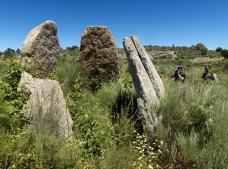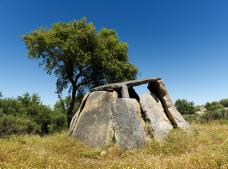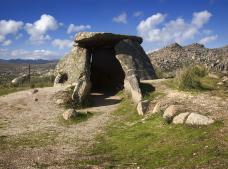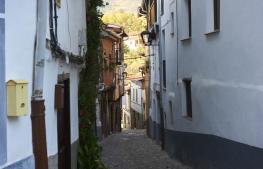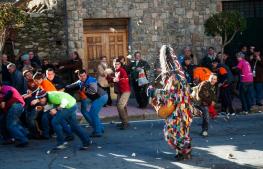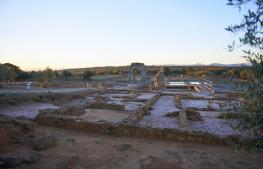Dolmens
Funerary monuments
The municipality of Valencia de Alcántara, in the county of Sierra de San Pedro, in the south-east of the province of Cáceres, is home to one of the Iberian Peninsula’s biggest collections of dolmens. This group of megalithic funerary monuments consists of 41 dolmens, 33 in granite and eight in slate.
The present-day town of Valencia de Alcántara, just 12 kilometres from the Portuguese border, has traces of human populations dating back to prehistoric times. The topography of this area is largely to thank for this, as the land’s large granite masses provided its inhabitants with the raw material to construct these monuments.
A dolmen is a megalithic construction and used to be considered a monument used for burials. It is estimated that the dolmens were constructed between the Neolithic and Chalcolithic Ages. Thousands of years later, they are still here with us. Dolmens could have been used for individual or group burials, and in all of them the deceased were buried together with their funerary objects. This has made it possible to learn more about the societies’ customs through the way in which they said goodbye to their loved ones.
Dolmens can be divided into three basic types, and in this group of dolmens we can find these three:
small single-chamber dolmens that are usually rectangular;
single-chamber dolmens with a short corridor, reaching up to 2.5 metres, and usually circular,
single-chamber dolmens with a long corridor, longer than 2.5 metres, and also usually circular.
These monuments can currently be visited on the Dolmens Route that follows three itineraries.
In 1992 dolmens were declared a Cultural Asset in the Archaeological Site category.
Weather
Herreruela
14Dec

8 ºC
15 ºC
15Dec

6 ºC
12 ºC
16Dec

6 ºC
12 ºC
17Dec

6 ºC
15 ºC
18Dec

4 ºC
15 ºC
19Dec

9 ºC
11 ºC
If you like Dolmens you will like this too...
Hervás Historical Site
Hervás is a town set in a privileged environment in the Ambroz Valley.
Festivals of Tourist Interest
The province of Cáceres is home to one Festival of International Tourist Interest and two festivals declared as being of National Tourist Interest.
Roman ruins of Cáparra
One highlight of the province of Cáceres is the numerous traces of its Roman-age splendour.
Test of content
In the banks of the Tagus River....
More things you can find in Sierra de San Pedro
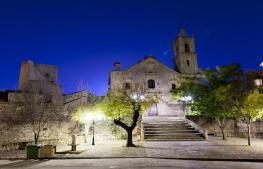
Valencia de Alcántara Historical Site
Valencia de Alcántara is a town in the county of Sierra de San Pedro.

